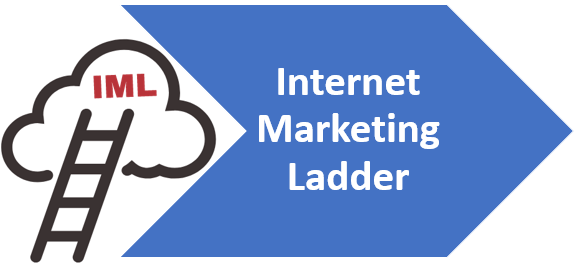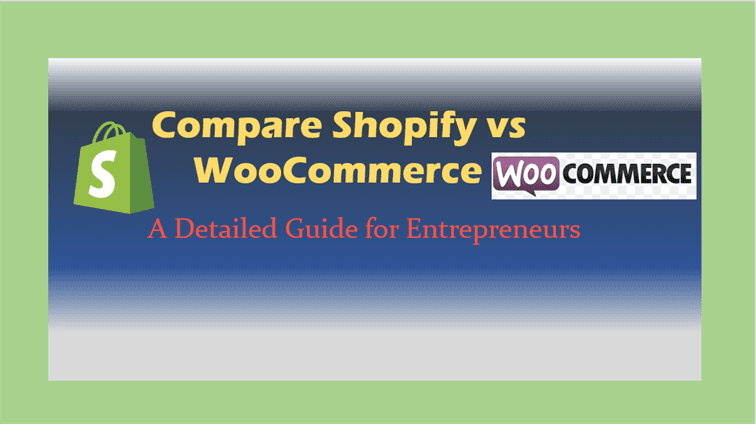Compare Shopify vs WooCommerce: The Ultimate Guide for Entrepreneurs
Compare Shopify vs WooCommerce to find the perfect e-commerce platform. Our expert guide covers pricing, features, scalability, and support options.
Introduction – Compare Shopify vs WooCommerce
In the ever-evolving world of e-commerce, choosing the right platform can make or break your online business. As an entrepreneur, you’re faced with a crucial decision: Shopify or WooCommerce? Both are titans in the e-commerce space, but which one is the perfect fit for your unique needs?
This comprehensive guide will dive deep into the Shopify vs WooCommerce debate, exploring every facet of these platforms to help you make an informed decision. We’ll cover everything from pricing and SEO capabilities to ease of use and dropshipping features. Whether you’re a seasoned business owner or a budding startup, this article will equip you with the knowledge to choose the platform that will propel your online store to success.
So, buckle up as we embark on this journey to compare Shopify vs WooCommerce and unlock the potential of your e-commerce dreams!
Free Trial – Compare Shopify vs. Woocommerce
Overview of Shopify and WooCommerce
Before we dive into the nitty-gritty details, let’s get a bird’s eye view of our contenders in the Shopify vs WooCommerce arena.
Shopify is a fully-hosted e-commerce platform that offers a turnkey solution for setting up an online store. It’s renowned for its user-friendly interface, robust sales features, and comprehensive customer support. With Shopify, you can create a professional-looking store without any coding knowledge, making it an attractive option for beginners and those who prefer an all-in-one solution.
WooCommerce, on the other hand, is a free, open-source plugin for WordPress. It offers unparalleled flexibility and control over your online store, allowing you to create a unique shopping experience tailored to your brand. However, it requires more technical know-how and doesn’t include hosting, so you’ll need to set that up separately.
Both platforms have their strengths and weaknesses, which we’ll explore in detail throughout this article. Let’s start by tackling one of the most crucial factors for any business: pricing.
Free Trial – Compare Shopify vs. Woocommerce
Pricing: Shopify vs WooCommerce
When it comes to comparing Shopify vs WooCommerce, pricing is often a make-or-break factor for many entrepreneurs. Let’s break down the costs associated with each platform:
Shopify Pricing
Shopify operates on a subscription-based model with three main plans:
- Basic Shopify: $29/month
- Shopify: $79/month
- Advanced Shopify: $299/month
Each plan includes hosting, SSL certificate, and access to Shopify’s core features. However, transaction fees apply unless you use Shopify Payments. As your business grows, you might need to upgrade to higher-tier plans for advanced features.
WooCommerce Pricing
WooCommerce itself is a free plugin, but don’t be fooled into thinking it’s entirely cost-free. Here are some expenses you’ll need to consider:
- Web hosting: $5-$25/month
- Domain name: $10-$15/year
- SSL certificate: $0-$100/year (many hosts offer free SSL)
- Premium themes: $0-$100 (one-time fee)
- Premium plugins: Varies widely, from $0-$200+ per year
While WooCommerce can be more cost-effective for tech-savvy entrepreneurs on a tight budget, costs can add up quickly as you add premium plugins and themes.
The Verdict on Pricing
For small to medium-sized businesses that prefer an all-in-one solution and predictable monthly costs, Shopify might be more appealing. However, if you’re comfortable with a bit of technical setup and want more control over your expenses, WooCommerce could offer better value in the long run.
SEO Capabilities: Shopify vs WooCommerce
Search Engine Optimization (SEO) is crucial for driving organic traffic to your online store. Let’s compare the SEO features of Shopify and WooCommerce:
Shopify SEO Features
- Customizable title tags, meta descriptions, and URLs
- Automatic sitemap generation
- Built-in blog for content marketing
- Mobile-friendly themes
- Fast loading speeds
WooCommerce SEO Features
- Full control over all SEO elements
- Access to powerful WordPress SEO plugins like Yoast SEO
- Customizable permalinks
- Rich snippets support
- Content-driven SEO potential through WordPress
The SEO Verdict
Both platforms offer solid SEO features, but WooCommerce (with WordPress) edges out slightly due to its flexibility and the power of dedicated SEO plugins. However, Shopify’s out-of-the-box SEO features are more than sufficient for most users and require less technical knowledge to implement effectively.
Ease of Use: Shopify vs WooCommerce
The user-friendliness of an e-commerce platform can significantly impact your day-to-day operations. Let’s see how Shopify and WooCommerce compare in terms of ease of use:
Shopify Ease of Use
- Intuitive drag-and-drop interface
- No coding knowledge required
- Quick setup process
- All-in-one solution (hosting, security, updates handled by Shopify)
- 24/7 customer support
WooCommerce Ease of Use
- Requires basic WordPress knowledge
- More flexible but with a steeper learning curve
- Separate hosting and security management required
- Extensive customization options for those with technical skills
- Large community for support and troubleshooting
The Usability Verdict
For beginners or those who want a hassle-free setup, Shopify is the clear winner in terms of ease of use. Its intuitive interface and comprehensive support make it easy to get your store up and running quickly.
WooCommerce, while offering more flexibility, requires more technical know-how and management. However, for those familiar with WordPress or those who desire complete control over their store, WooCommerce’s learning curve might be worth the effort.
Free Trial – Compare Shopify vs. Woocommerce
Market Share: Shopify vs WooCommerce
Understanding the market share of these platforms can give you insights into their popularity and reliability. Let’s look at how Shopify and WooCommerce stack up in terms of market dominance:
Shopify Market Share
- Powers over 4 million live websites worldwide
- Holds about 31% of the e-commerce platform market share
- Popular among small to medium-sized businesses
- Used by notable brands like Kylie Cosmetics, Allbirds, and MVMT Watches
WooCommerce Market Share
- Powers over 5 million live websites
- Holds about 28% of the e-commerce platform market share
- Popular among businesses of all sizes, from small startups to large enterprises
- Used by notable brands like Weber, Airstream, and Ripley’s Believe It or Not!
The Market Share Verdict
Both Shopify and WooCommerce are giants in the e-commerce space, with a significant and growing user base. The choice between them often comes down to specific business needs rather than market dominance.
Dropshipping: Shopify vs WooCommerce
Dropshipping has become an increasingly popular e-commerce model. Let’s see how Shopify and WooCommerce support dropshipping:
Shopify Dropshipping
- Seamless integration with dropshipping apps like Oberlo
- Easy product import from AliExpress and other suppliers
- Automated order fulfillment
- Built-in features for inventory management
WooCommerce Dropshipping
- Plugins available for dropshipping (e.g., AliDropship, WooDropship)
- More control over the dropshipping process
- Integration with various suppliers possible
- Requires more setup and management compared to Shopify
The Dropshipping Verdict
For those new to dropshipping or looking for a straightforward setup, Shopify’s integrated solutions make it the more attractive option. However, WooCommerce offers more flexibility and control for those willing to put in the extra effort to set up and manage their dropshipping operations.
Design and Customization
The look and feel of your online store can significantly impact customer experience and conversions. Let’s compare the design and customization options for Shopify and WooCommerce:
Shopify Design and Customization
- Over 100 professional themes (both free and paid)
- Easy-to-use theme editor
- Limited customization without coding knowledge
- Liquid templating language for advanced customization
WooCommerce Design and Customization
- Thousands of WordPress themes compatible with WooCommerce
- Complete control over design with access to source code
- Highly customizable with knowledge of HTML, CSS, and PHP
- Drag-and-drop page builders available (e.g., Elementor, Divi)
The Design Verdict
Shopify offers a more streamlined approach to design with professional, ready-to-use themes. This is ideal for those who want a polished look without extensive customization.
WooCommerce, with its vast theme ecosystem and complete design control, is better suited for those who want a unique, highly customized store and have the technical skills (or resources to hire a developer) to achieve it.
Payment Gateways and Transaction Fees
The ability to accept payments easily and cost-effectively is crucial for any e-commerce business. Let’s compare Shopify and WooCommerce in terms of payment options and fees:
Shopify Payment Gateways and Fees
- Shopify Payments (0% transaction fee)
- Over 100 third-party payment gateways
- Transaction fees (0.5% – 2%) for non-Shopify Payments
- Credit card rates: 2.4% – 2.9% + 30¢ per transaction
WooCommerce Payment Gateways and Fees
- WooCommerce Payments (built-in)
- Hundreds of payment gateway plugins available
- No WooCommerce transaction fees
- Payment gateway fees vary (typically 2.9% + 30¢ per transaction)
The Payment Verdict
Shopify offers a more streamlined payment process with Shopify Payments, but the potential transaction fees for using other gateways can be a drawback. WooCommerce provides more flexibility in choosing payment gateways without additional transaction fees, but setup can be more complex.
Security and Reliability
Ensuring the security of your online store and customer data is paramount. Let’s see how Shopify and WooCommerce handle security and reliability:
Shopify Security and Reliability
- PCI DSS compliant out of the box
- Automatic updates and security patches
- 99.99% uptime guarantee
- Built-in SSL certificate
- Regular backups managed by Shopify
WooCommerce Security and Reliability
- Security depends on your hosting provider and maintenance
- Regular updates required (WordPress, WooCommerce, plugins)
- SSL certificate usually provided by hosting (or purchased separately)
- Backups need to be set up manually or through hosting provider
The Security Verdict
Shopify takes the lead in terms of hands-off security and reliability. Its fully-managed platform ensures that your store is always up-to-date and secure. WooCommerce can be equally secure, but it requires more active management and depends on your choice of hosting provider and security practices.
Scalability and Performance
As your business grows, your e-commerce platform needs to keep up. Let’s compare how Shopify and WooCommerce handle scalability and performance:
Shopify Scalability and Performance
- Automatically scales to handle traffic spikes
- Content Delivery Network (CDN) included
- Built-in performance optimizations
- Upgrade to Shopify Plus for enterprise-level features
WooCommerce Scalability and Performance
- Scalability depends on your hosting plan
- Performance can be optimized with caching plugins and CDNs
- Highly customizable for specific performance needs
- Can handle large inventories and high traffic with proper setup
The Scalability Verdict
Shopify provides a more straightforward path to scalability with its managed hosting and automatic optimizations. WooCommerce offers potentially unlimited scalability, but it requires more hands-on management and potentially higher costs as you scale.
Customer Support and Community
When you run into issues or need guidance, having access to reliable support can be crucial. Let’s compare the support options and community resources for Shopify and WooCommerce:
Shopify Support and Community
- 24/7 customer support (email, live chat, phone)
- Extensive documentation and tutorials
- Active community forums
- Shopify Experts marketplace for professional help
WooCommerce Support and Community
- Support through WordPress and WooCommerce forums
- Extensive documentation and knowledge base
- Large, active community of developers and users
- Third-party support available through freelancers and agencies
The Support Verdict
Shopify offers more comprehensive official support, which can be a significant advantage for those new to e-commerce or those who prefer direct assistance. WooCommerce, while lacking official 24/7 support, benefits from a vast community and ecosystem of developers, which can be invaluable for troubleshooting and customization.
Pros and Cons: Shopify vs WooCommerce
Let’s summarize the strengths and weaknesses of each platform:
Shopify Pros:
- User-friendly interface
- All-in-one solution (hosting, security, updates included)
- 24/7 customer support
- Built-in marketing and SEO tools
- Seamless integration with dropshipping apps
Shopify Cons:
- Monthly subscription costs
- Transaction fees for non-Shopify payment gateways
- Limited customization without coding knowledge
- Content ownership concerns (platform lock-in)
WooCommerce Pros:
- Free, open-source plugin
- Highly customizable
- No transaction fees
- Full control over your data and content
- Extensive plugin ecosystem
WooCommerce Cons:
- Steeper learning curve
- Requires separate hosting and security management
- Updates and maintenance needed regularly
- Costs can add up with premium themes and plugins
Key Takeaways
When you compare Shopify vs WooCommerce, remember these crucial points:
- Ease of Use: Shopify is more user-friendly for beginners, while WooCommerce offers more control for tech-savvy users.
- Pricing: Shopify has predictable monthly costs, whereas WooCommerce can be cheaper but with variable expenses.
- Customization: WooCommerce offers more flexibility, while Shopify provides a more streamlined approach.
- Scalability: Both can handle growth, but Shopify offers a more hands-off approach to scaling.
- Support: Shopify provides comprehensive official support, while WooCommerce relies more on community support.
- SEO: Both offer strong SEO capabilities, with WooCommerce having a slight edge due to WordPress integration.
- Dropshipping: Shopify has more integrated dropshipping solutions, but WooCommerce offers more control.
The best choice between Shopify and WooCommerce depends on your specific needs, technical skills, and long-term business goals. Consider these factors carefully to make the best decision for your e-commerce venture.
FAQ: Compare Shopify vs WooCommerce
- Q: Which is better for beginners, Shopify or WooCommerce? A: Shopify is generally considered more beginner-friendly due to its all-in-one solution and intuitive interface.
- Q: Can I switch from Shopify to WooCommerce (or vice versa) later? A: Yes, it’s possible to migrate between platforms
- Q: Is Shopify or WooCommerce better for SEO? A: Both platforms offer strong SEO features, but WooCommerce (with WordPress) has a slight edge due to its flexibility and powerful SEO plugins.
- Q: Which platform is more cost-effective, Shopify or WooCommerce? A: WooCommerce can be more cost-effective for tech-savvy users on a tight budget, while Shopify offers more predictable costs for those who prefer an all-in-one solution.
- Q: Can I use my own domain name with both Shopify and WooCommerce? A: Yes, both platforms allow you to use your own custom domain name.
- Q: Which platform offers better customer support, Shopify or WooCommerce? A: Shopify offers more comprehensive official support, including 24/7 customer service, while WooCommerce relies more on community support and documentation.
- Q: Is it easier to scale with Shopify or WooCommerce? A: Shopify offers easier scalability with its managed hosting, while WooCommerce scalability depends on your hosting provider and setup.
- Q: Can I sell digital products on both Shopify and WooCommerce? A: Yes, both platforms support the sale of digital products as well as physical goods.
- Q: Which platform is better for dropshipping, Shopify or WooCommerce? A: Shopify has more integrated dropshipping solutions, making it easier for beginners, but WooCommerce offers more control and flexibility for experienced users.
- Q: Can I integrate third-party apps and plugins with both platforms? A: Yes, both Shopify and WooCommerce have extensive ecosystems of apps and plugins to extend functionality.
Compare Shopify vs WooCommerce – Additional Resources
For more insights and information, check out these resources:
Free Trial – Compare Shopify vs. Woocommerce
Posts Related to Compare Shopify vs WooCommerce:
More Information – External Links::
- Shopify POS Pro Official Page – Official Shopify POS Pro Page
- Shopify POS Pro Guide by Shopify – Shopify’s Official Guide on Shopify POS Pro
- Shopify vs. Woocommerce 2023: Which Platform Is Better? “Shopify’s Official Comparison with WooCommerce”







